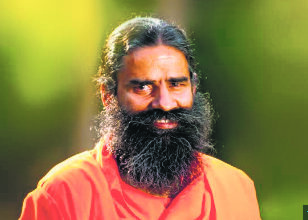Life of an individual is of paramount importance and due to the spread of novel Coronavirus (Covid-19), people across the world are struggling to save their life and the lives of their loved ones. Once the life is lost, it cannot be restored. It is for this reason, Right to Life of a person is recognised as the most pivotal fundamental right enshrined under Article 21 of the Constitution of India (hereinafter referred to as ‘the Constitution’). The framers of the Constitution ensured that this right is available to citizens as well as non-citizens. Article 21 of the Constitution uses the word “person” in contrast to the word “citizen” in Article 15, 16, 18, 19 and 29 of the Constitution. This most pivotal right has been interpreted in its widest sense by the Courts in India to include various other important rights including the Right to Health which are not expressly provided under the Constitution. The Courts have interpreted “Right to Health” to be covered under the ambit of expression “life” as envisaged under Article 21. Reading Article 21 in consonance with various other provisions of the Constitution namely Article 38, 42 and 47, it is quite conspicuous that right to health is inherent to right to life and duty is casted on the State to ensure the effective realisation of this right.


Various newspapers across the nation are flooded with reports of non-availability of beds, shortage of oxygen cylinders/injections in both Government and Private Hospitals. The Central and State Government are taking corrective measures to ensure that appropriate medical facilities are provided to all persons. But despite all these efforts, a vast number of people were not able to get timely treatment. Here, a distinction is required to be drawn between the patients who were rendered medical treatment but could not be saved despite the best efforts of the Doctors, and patients who succumbed to death on account of the non-availability of medical facilities in the hospitals such as beds, oxygen, medicines, etc.
Article 21 stipulates that no person shall be deprived of his life and liberty except according to the procedure established by law. Nowadays, when the people of this Country are lying at the mercy of Central and State Authorities seeking medical aid, it is excruciatingly obvious that these authorities have failed to perform their constitutional duty. The question is whether failure on part of authorities to provide medical treatment results in deprivation and violation of the fundamental right of Right to Health?
VIEWPOINT OF THE COURTS ON RIGHT TO LIFE VIS-A-VIS RIGHT TO HEALTH AND COMPENSATION FOR ITS BREACH
The Supreme Court in the landmark case of Parmanand Katara v/s Union of India & Ors. (1989) 4 SCC 286 has categorically held that it is the obligation of the State/ Government to preserve life. The Court further observed that death by negligence does not tantamount to legal punishment. Every Doctor whether at Government Hospital or not, has a duty to extend medical assistance for the preservation of life. No law or state action can interfere to avoid/ delay the discharge of the paramount obligation casted on the members of the medical profession.
In the case of Paschim Banga Khet Mazdoor Samity v/s State of W.B.(1996) 4 SCC 37 the Supreme Courtrelying upon Parmanand Katara’s (supra) judgmenthas categorically held that it is the primary duty of the Government to secure the welfare of the people and it is the constitutional obligation of the State to provide adequate medical facilities for the people. In this case, the patient was denied medical treatment in a government hospital for non-availability of bed, the Supreme Court held it to be violative of Article 21 and directed the Government to pay compensation of Rs. 25,000/- to the patient. In another important decision of Delhi Jal Board v/s National Campaign for Dignity and Rights of Sewerage and Allied Workers & Ors., (2011) 8 SCC 568, the Supreme Court directed the State and its agencies/instrumentalities to pay Rs. 5 Lakhs as compensation individually, to the families of sewage workers died due to failure on the part of Government to put in place appropriate mechanism for protection of sewage workers and also to provide protective gears and equipments.
In the case of D.K. Basu v/s Union of India (1997) 1 SCC 416 the Supreme Court while dealing with violation of Article 21 on account of custodial violence has held that monetary compensation is an appropriate and effective remedy for redressal of established infringement of fundamental rights and the State is not entitled to the defence of sovereign immunity. The compensation granted under Writ proceedings either by High Court or Supreme Court is without prejudice to any other action like a civil suit for damages.
The Bombay High Court in the case of Pratibha Shinde & Ors. v/s State of Maharashtra & Ors.(2021) SCC OnLine Bom 87 while dealing with the case of the unfortunate death of an old lady suffering from Covid-19 on account of negligence on part of hospital administration in providing timely and proper medical treatment, fixed the accountability on the State Government by directing to pay compensation of Rs. 5 lakh to the legal heirs of the patient for violation of her fundamental rights.
The Patna High Court in the case of Shivani Kaushik v/s Union of India & Ors. CWJC No. 353/2021 has observed that inaction on the part of the State in providing adequate health care to the citizens, particularly during the prevailing Covid-19 situation, would be violative of Right to Life under Article 21 of the Constitution.
The Allahabad High Court while hearing the suo-moto petition In-Re Inhuman Condition At Quarantine Centres And For Providing Better Treatment To Corona Positive vide its order dated 04.05.2021 in a very ignominy and infuriated manner observed that “non-supplying of oxygen to the hospitals is a criminal act and not less than a genocide by those who have been entrusted the task to ensure continuous procurement and supply chain of the liquid medical oxygen.”
LIABILITY OF HOSPITAL
When it comes to fixing liability on hospitals, it is important to categorize them into two parts i.e. Government Hospitals and Private/ Non-Government Hospitals. Since the first and foremost obligation for the preservation of life is on the State, any negligence or non-availability of medicals facilities like beds, oxygen, medicines, etc. resulting in the delay of treatment or death of a person would result in deprivation of his life, for which compensation can be awarded to the victims (family members) in light of the aforesaid judgments.
During this period, the Central/ State Government has taken over the supply of oxygen and various other medicines/ vital drugs (like Remdesivir). Delay in supply affects the obligation of the medical professionals in rendering timely medical assistance to the patients undergoing treatment. It is the pious obligation of the Government to ensure timely supply of these essential lifesaving medical supplies to the hospitals at the earliest and delay in supplying of these essential commodities to the Hospitals (both Government and Private) for whatsoever reason would result in deprivation of life of an individual.
When it comes to affixing liability on Private Hospitals, it is quite conspicuous that the Central Government and State Government are liable for providing compensation where delay in supplying of oxygen and vital drugs to the Private Hospitals is on account of the Government authorities.
Though Private/Non-Government hospitals stand on a different footing as they are not owned by the government, however, they are performing public functions and there exists deep and persuasive control of the Government as it can be very well seen during the prevailing Covid-19 pandemic situation. In view of the judgments of the Supreme Court in the case of R.D. Shetty v/s International Airport Authority of India & Ors. (1979) 3 SCC 489and Ajay Hasiav/sKhalid Mujib (1981) 1 SCC 722 Private Hospitals can be construed as an instrumentality of State under Article 12 of the Constitution and also be made liable to pay compensation by the Supreme Court or the High Courts while exercising writ jurisdiction for any kind of medical negligence on their part. Apart from this, the victim always has a right to approach Consumer Forum or Civil Courts for seeking compensation and damages separately.
EPILOGUE
While fighting with the deadly virus of Covid-19, the world has seen multitudinous fatalities due to inadequacy of medical resources and lack of systematic governmental strategies. Talking about the present situation, India being a welfare State, is one of the worst affected country which is struggling hard to overcome the second deadly wave of Covid-19. The role of the Government is considered to be very crucial for fighting with the second wave of Covid-19 as it is the primary duty of the Government to secure the welfare of the people and to protect their life. But unfortunately, the Government has failed to discharge its duty in providing timely medical facilities. The patients have to run from post to pillar seeking proper and timely medical aid from the hospitals but due to inadequacy of proper medical supplies, they have no option but to create hue and cry making the situation abysmal. Had the Government prepared a systematic mechanism to tackle the present situation in advance, the lives of so many individuals would have been saved today. Shortcoming and lapses in providing medical treatment amount to a violation of right to life guaranteed under Article 21 of the Constitution.
To sum up, it would be safe to say that it is the paramount obligation of the Government to ensure proper medical treatment, denial of the same by whatsoever reason would results in violation of Article 21 thereby entitling the victims (family members) to receive monetary compensation for violation of the rights. Though no amount of compensation can outweigh the trauma, pain and suffering of the victims, monetary compensation is the manner known to law by which restitution of the family members can be done. The quantum of monetary compensation would depend on individual facts and circumstances of a particular case.
Adv. Mudit Maheshwari, High Court of M.P., Indore And Adv. Hardik Gautam, High Court Of Rajasthan, Jodhpur
Disclaimer: This article is meant for informational purposes only and does not purport to be advice or opinion, legal or otherwise, whatsoever. Views expressed in this article are personal views of the authors and have no connection with their professional duties.























